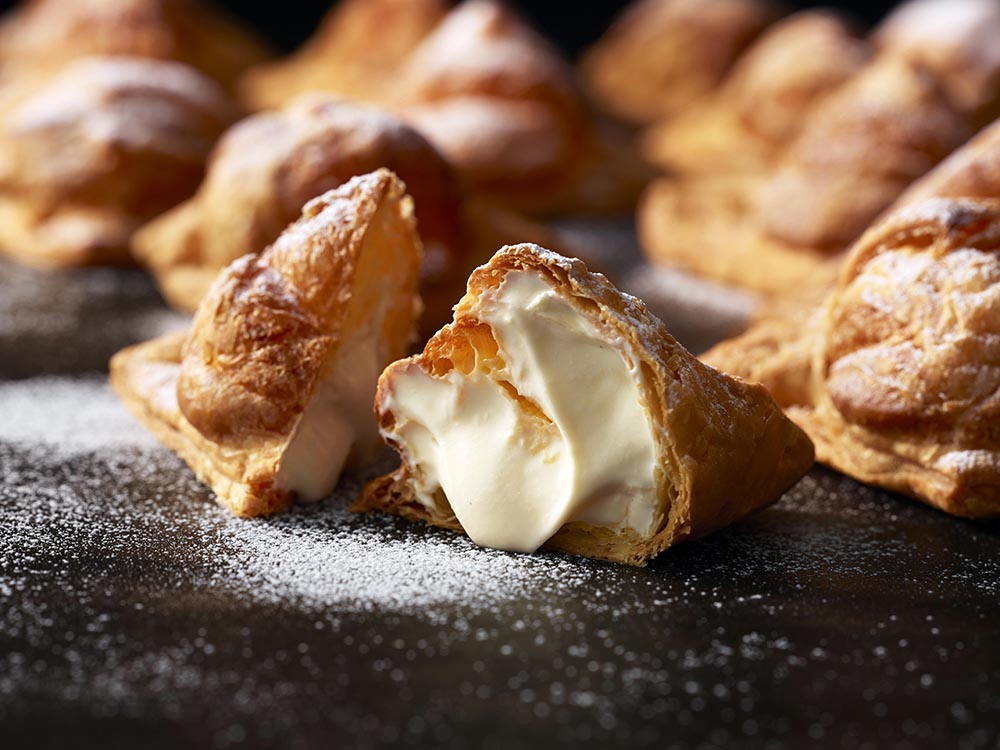Tokyo Milk Cheese Factory (TMCF) is renowned the world over for its cookies. But aside from these baked biscuits, the Japanese confectionery brand is a leader in upholding the value of uncompromising belief in a product—even if it comes with a rocky past.
Believing in a product, however dismal the numbers may look on spreadsheets, shows the kind of mindset of Seigo Kawagoe has. As president and CEO of Kotobuki Spirits, the mother company behind TMCF and 17 other regional segments involved in confectionery across Japan, many Filipino entrepreneurs can learn a thing or two from Kawagoe himself whose attitude to never be curtailed by challenges enabled him to turn the business into a Y250 billion ($2.2 billion) company at market cap as of December 2019.
If you’ve ever been to Japan, chances are that you’ve tried one of their sweets. The umbrella group Kotobuki Spirits is behind some of the dominant confectioneries—20 brands in total—in their respective segments like Hokkaido’s LeTao double fromage cheesecake, The Maple Mania’s butter cookies and maple syrup, and Butter Butler’s financiers and cakes made with chocolate, caramel, or butter sourced from France and Switzerland.
At TMCF, cheese is central to Kawagoe’s direction and his take on transforming the dairy product into potent cookie combos is testament to a business acumen bolstered by an unmistakable vision.
“I wanted to create a brand specializing in cheese,” he says through his son Shintaro who not only skillfully translates on his behalf but also oversees the Hong Kong and Indonesia markets. There is a laser-like focus at play with how Kawagoe strategizes his company. “For sweets, the ingredient is key. We pick one ingredient and from there we make a world from that brand.”
Even though Tokyo Milk Cheese Factory has gone international with stores in South Korea, Singapore, Thailand, China, Malaysia, Taiwan, and the Philippines, the essence remains intact no matter where it operates. Quality it seems is an emotive issue for Kawagoe and arguably one of the driving factors behind its success.
True, there is a common thread across all brands but each comes from a place of authenticity that distinguishes one from the other. It’s this clear differentiator that winds up being one of the most useful and unique selling propositions for Kawagoe. He sticks to what he knows—whether that be in his background with wagashi or traditional Japanese sweets like mochi and anko (red bean paste) or in open-heartedly trusting his instincts.
TMCF, for example, used to be under a company whose financial situation was on the ropes. But Kawagoe’s stance on the product played a considerable part in acquiring, renewing, and then relaunching it as Sucrey under which TMCF was created. It wasn’t smooth sailing though.
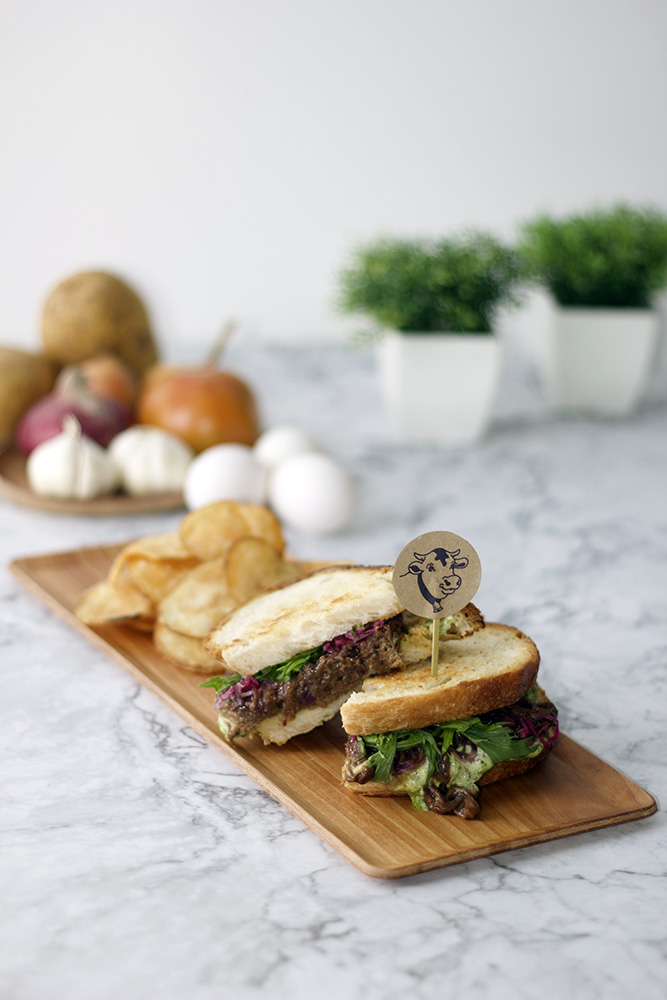
“The first three years to be honest, sales [were] not good,” he says, “but we had the confidence in the product. We did a lot of testing and customer trials.” Until such point that the playful lines and headstrong ambition for the brand paid off. Delighted to discover the flavor combinations in their products—particularly the salt and camembert cookies—the factory proved to be a hit with the Japanese public.
“I tried a lot and I found that camembert cheese and Guérande salt from France and the combination of these two was perfect so that’s why I decided to go with that first,” says Kawagoe, whose adherence to premium quality ingredients remains an important factor in preserving the sanctity of a brand with a potential for expansion.
Even though TMCF has gone international with stores in South Korea, Singapore, Thailand, China, Malaysia, Taiwan, and the Philippines, the essence remains intact no matter where it operates. Quality it seems is an emotive issue for Kawagoe and arguably one of the driving factors behind TMCF’s success.
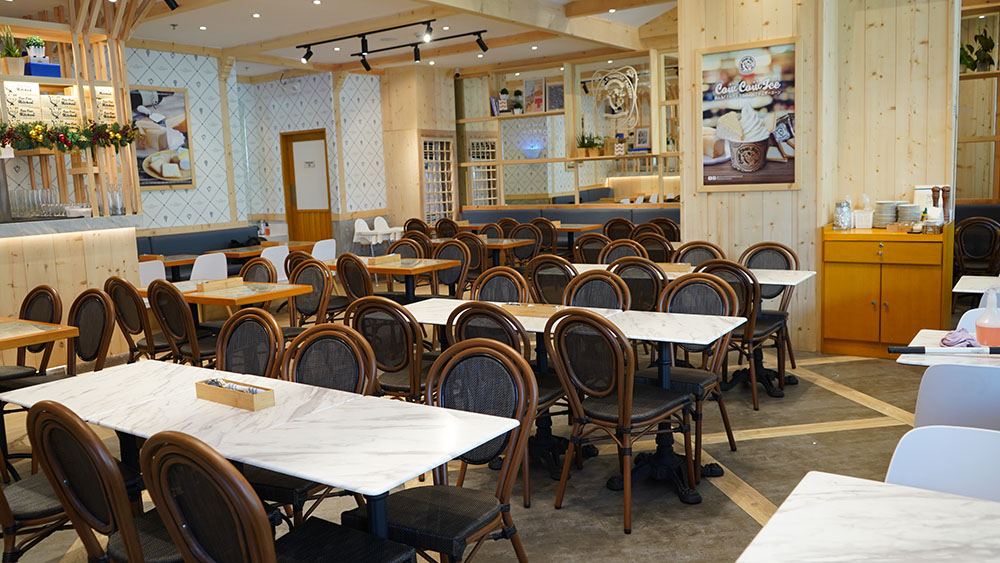
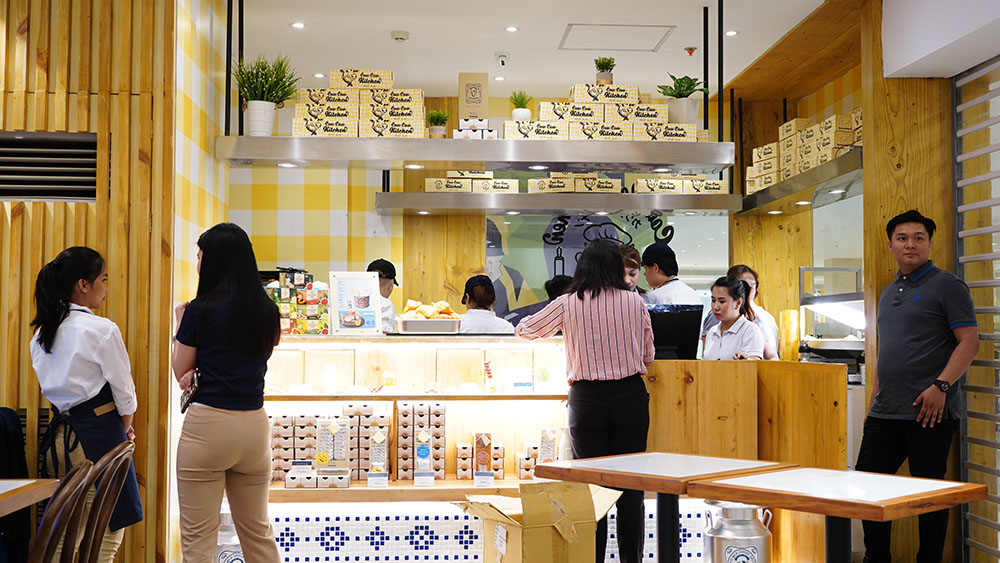
“Our main policy is to keep improving, to make a better product compared to yesterday,” he says. “For example, the milk pie, every day we try to make it five or six times better or check what is the temperature? This is better. Every day we keep evolving. If today, we aim the same, we cannot go past what we did previously; this will not the move the customer’s mind.”
But it doesn’t fully explain the following the brand has amassed. It’s also down to how Kawagoe conducts business through the wisdom he’s earned over the years, from both the risks he’s taken and the directional changes he’s being pulled into.
This year, Kawagoe also saw innovation as an indicator of success with the launch of TMCF’s first full-service restaurants in Ayala Malls Manila Bay and Estancia Mall in Capitol Commons. Both called Tokyo Milk Cheese Factory Savory + Sweet, the restaurants are barn-like affairs buoyed by an interest in improving the brand and testing out a new model. The business is in partnership with iFoods Group headed by Bryan Tiu who founded Ichiba Japanese Market and Teriyaki Boy.
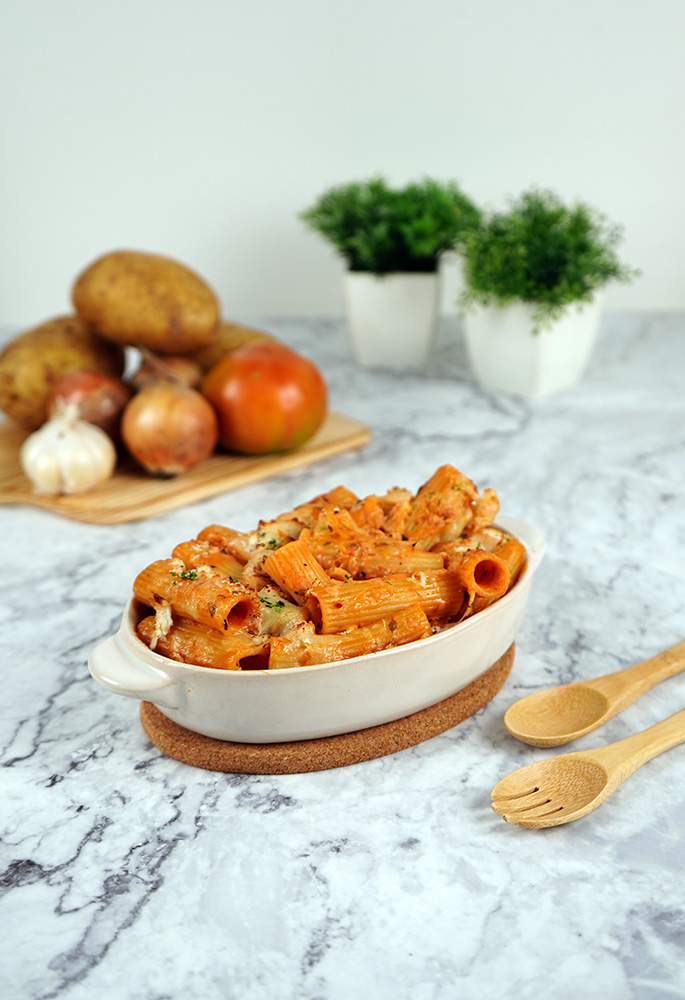
“The full-service restaurant is a collaboration. In Japan, he has some cafés but not TMCF,” says Tiu. “And I said the Philippines still lacks the authenticity of a sweet and savory café and I think there’s good opportunity here.” Tokyo Milk Cheese Factory Savory + Sweet sees Kawagoe and Tiu confidently march into a new market segment with abandon—and a social experience tailor-made for Filipinos—but with the benefit of their own respective strengths.
Starting with the addition of “savory” in its name, as if welcoming a new age for the brand, TMCF Savory + Sweet is announcing that the restaurant is finding itself first before fully launching into a potentially rewarding future. As a result, the restaurant has developed some interesting ideas and points of entry for the Filipino consumer.
Many Filipino entrepreneurs can learn a thing or two from Kawagoe himself whose attitude to never be curtailed by challenges enabled him to turn the business into a Y250 billion ($2.2 billion) company at market cap as of December 2019.
There’s the savory menu that plays into the strengths of yoshoku or Japanese Western food such as omurice (Japanese omelet with chicken fried rice), fluffy pancakes with berries, chocolate or whipped cream, and a 12-hour short rib sandwich using a sourdough loaf. Then a transparent kitchen concept called Cow Cow Kitchen, which shows the breadth and joy of having the word “factory” in its name, serves as a lab to test food experiments and replicate time-tested recipes such as the signature milk pie (crispy and flaky pastry filled with Hokkaido milk cream). “We call it a hybrid sweet,” says Tiu, “or those that are freshly prepared in store so people can enjoy the freshness and quality.”
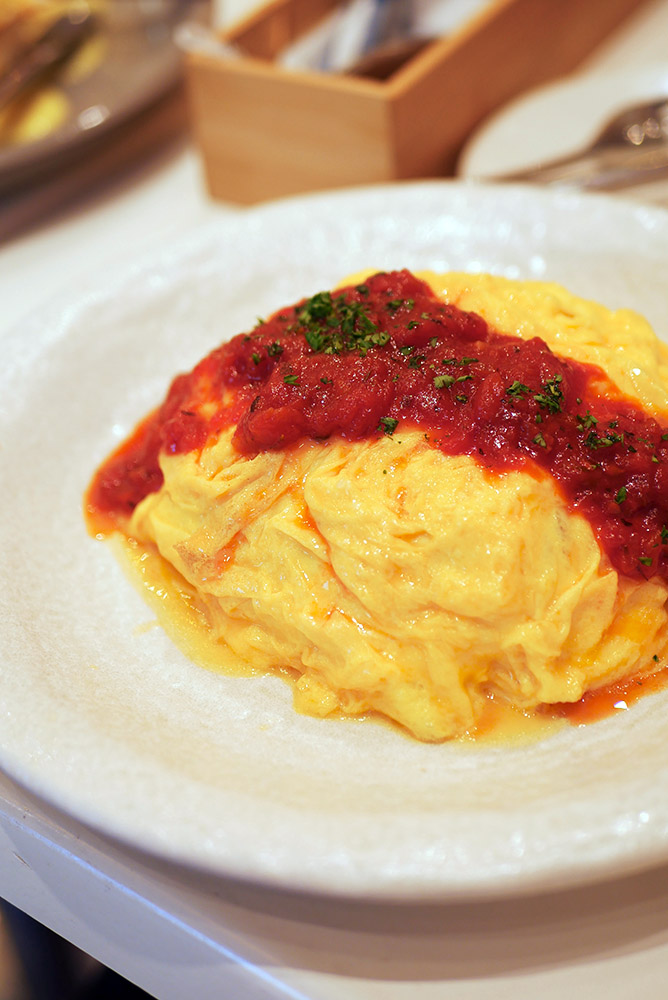
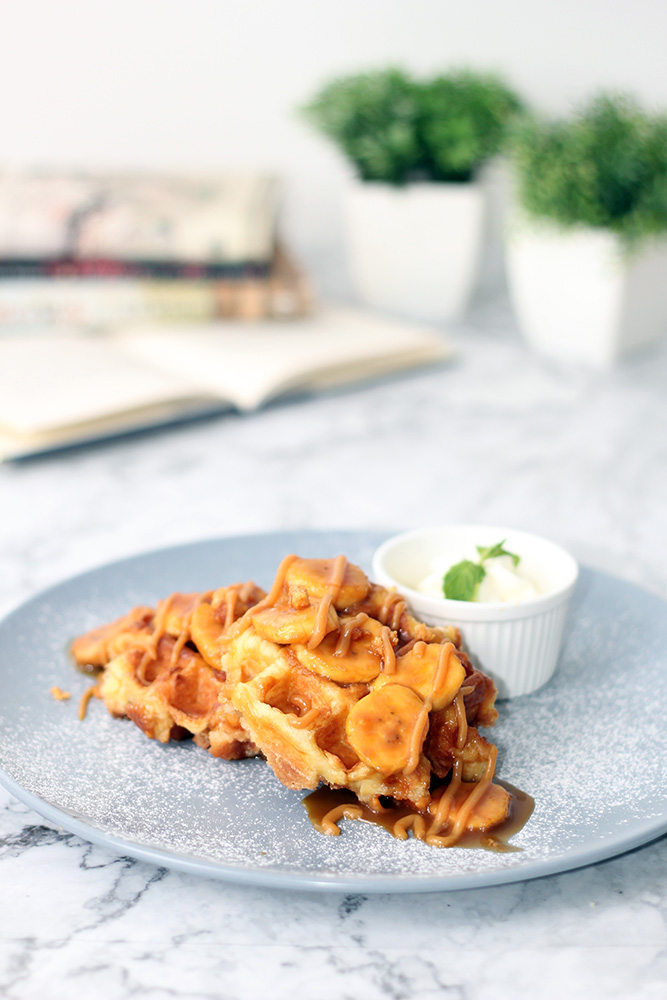
The openness of the space also exhibits the labor-intensive approach to replicate the pastries using imported raw ingredients or semi-finished products with a Filipino touch.
“So far this is a model case,” says Kawagoe. “Every country has a different style. So we think the best business for each region… For example, in Bangkok, Thailand, we don’t serve savory but in Indonesia, we made a similar savory and sweet one.” But Kawagoe has also given Tiu a challenge: to open 50 stores in two years’ time, which is something that is already being discussed.
But while the opportunity for ambition and scale is present, Kawagoe recognizes the need to invest in developing a multidimensional restaurant that’s neither trendy nor boring. “We believe that we shouldn’t follow trends. It’s something you create. If you follow trends, the sales will go up but it will die soon. If you create a new [category], sales will gradually [increase].”
Naturally the question remains to be seen whether TMCF Savory + Sweet can reshape Filipinos’ views on premium quality into something that delivers value on a daily basis in the long run. Yet looking across the sweeping restaurants, there’s a sense that Kawaagoe’s instincts may have steered him into an initiative that he, once again, feels is just right.





